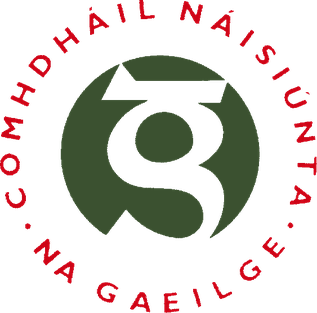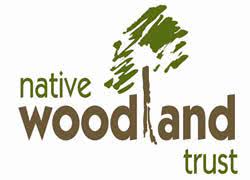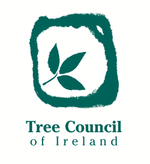
Conservation in the Republic of Ireland is overseen by a number of statutory and non-governmental agencies, including those with responsibility for conservation of the built environment and conservation of the natural environment in Ireland. Conservation has sometimes been a contentious issue, with debates impacting its progress since the 1960s. Concrete initiatives are sometimes driven by European Union (EU) heritage protection and environmental policies, including EU environmental law, which – as a member – the Irish government is obliged to adopt and implement.

The Woodland Trust is the largest woodland conservation charity in the United Kingdom and is concerned with the creation, protection, and restoration of native woodland heritage. It has planted over 68 million trees since 1972. The Woodland Trust has three aims: to protect ancient woodland which is rare, unique and irreplaceable, to promote the restoration of damaged ancient woodland, and to plant native trees and woods to benefit people and wildlife.
A social enterprise is an organization that applies commercial strategies to maximize improvements in financial, social and environmental well-being. This may include maximizing social impact alongside profits for co-owners.

Trees for Life is a registered charity working to rewild the Scottish Highlands.
An Taisce – The National Trust for Ireland, established on a provisional basis in September 1946, and incorporated as a company based on an “association not for profit” in June 1948, is a charitable non-governmental organisation (NGO) active in the areas of the environment and built heritage in the Republic of Ireland. It considers itself the oldest environmental and non-governmental organisation in the country, and is somewhat similar to the National Trust of England, Wales and Northern Ireland but based more directly on the National Trust for Scotland. Its first president was the prominent naturalist Robert Lloyd Praeger.

Coillte is a state-owned commercial forestry business in Ireland based in Newtownmountkennedy. Coillte manage approximately 7% of the country’s land, and operates three businesses - their core forestry business, a 'land solutions' division, and a wood panel manufacturing business called 'Medite Smartply'.
Wales Council for Voluntary Action (WCVA) is the national membership organisation for the third sector and volunteering in Wales. Its aim is to work towards 'A future where the third sector and volunteering thrive across Wales, improving wellbeing for all'.
The National Biodiversity Network (UK) (NBN) is a collaborative venture set up in 2000 in the United Kingdom committed to making biodiversity information available through various media, including on the internet via the NBN Atlas—the data search website of the NBN.

Rossmore Forest Park is a national forest park located in County Monaghan in Ireland run by the Irish States forestry organisation, Coillte. It is situated approximately 5km outside Monaghan town and has its main entrance on the R189 Threemilehouse/Newbliss Road.

Comhdháil Náisiúnta na Gaeilge (CNnaG) was the central steering council for a number of organisations involved in the promotion of the Irish language. Its mission was to "strengthen and consolidate goodwill and support for the Irish language and its usage as a living language so that it may be used freely and widely in all aspects of Irish life".
Wildlife and Countryside Link (Link) is the largest environment and wildlife coalition in England, bringing together voluntary organisations in the UK to protect wildlife, restore landscapes and the marine environment, and improve access to nature.

The United Kingdom, being in the British Isles, is ideal for tree growth, thanks to its mild winters, plentiful rainfall, fertile soil and hill-sheltered topography. In the absence of people, much of Great Britain would be covered with mature oaks as well as savannah-type of plains, except for Scotland. Although conditions for forestry are good, trees face threats from fungi, parasites and pests. Nowadays, about 13% of Britain's land surface is wooded. European countries average 39%, but this varies widely from 1% (Malta) to 66% (Finland). As of 2021, government plans call for 30,000 hectares to be reforested each year. Efforts to reach these targets have attracted criticism for planting non-native trees, or trees that are out of place for their surroundings, leading to ecological changes.
Irish Seed Savers Association (ISSA) is an Irish non-governmental organisation founded in 1991. The Irish Seed Savers Association maintains a seed bank with over 600 non-commercially available varieties of seed.
The Scottish Council for Voluntary Organisations (SCVO) is the national membership body for Scotland’s charities, voluntary organisations and social enterprises. SCVO works to support people to take voluntary action to help themselves and others, and to bring about social change. It provides services and support to the third sector in Scotland to advance shared values and interests. SCVO has approximately 2,800 members, ranging from individuals and grassroots groups, to Scotland-wide organisations and intermediary bodies. The organisation employs approximately 100 staff.
Scohaboy Bog is a raised bog in County Tipperary in Ireland. It lies approximately 6 km northwest of Cloughjordan, County Tipperary, between the N52 and R490 roads.
The Woodland Carbon Code is the UK standard for afforestation projects for climate change mitigation. It provides independent validation and verification and assurance about the levels of carbon sequestration from woodland creation projects and their contribution to climate change mitigation.
The Quality Council of India (QCI) was set up as a public private partnership model on the model existing in Netherlands at the time, where although the National Accreditation Body (NAB) was not owned by the government, the government supported it and it was exceedingly used as a third party agency to improve quality in departments and industry. QCI thus came to be organized as an independent autonomous body that worked towards assuring quality standards across all spheres of economic and social activities. Key industry associations, i.e. Associated Chambers of Commerce and Industry of India (ASSOCHAM), Confederation of Indian Industry (CII) and Federation of Indian Chambers of Commerce and Industry (FICCI) became the promoters of the organizers and QCI got established under the Societies Registration Act in 1996 to provide accreditation services in various sectors for product, services and persons.

Greenfleet is an Australian not-for-profit environmental organisation focused on protecting the climate by restoring native forests.

The Native Woodland Trust is an Irish environmental non-governmental organisation established in 2000 with the aims of restoring and protecting Irish native woodland. The Trust is dedicated to protecting the remains of Ireland's ancient woodlands from further damage and destruction, letting them grow again, and the restoration of woodland across Ireland using native tree species.

amaptocare is a large-scale public art work, in the form of a participative sponsored tree-planting project in Ballymun on the Northside of Dublin, Ireland. Proposed by German conceptual artist Jochen Gerz and commissioned by Breaking Ground on behalf of Dublin City Council's Ballymun Regeneration Limited as a percent for art scheme, it involved planting semi-mature trees in each neighbourhood of Ballymun, each with a personal comment from its sponsor inscribed on a nearby metal and ceramic lectern. Over 630 trees from a choice of 15 mostly native varieties were sponsored, most by locals and other Dubliners, and 620 were planted by 2006.












